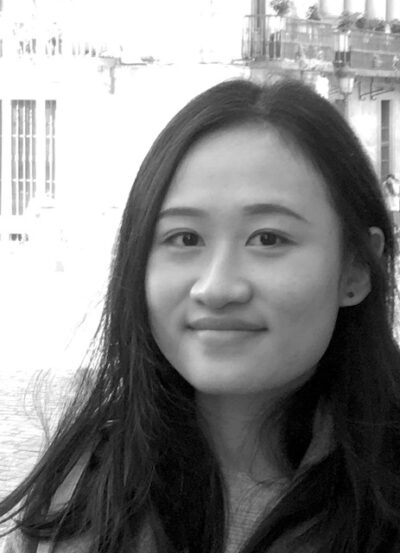Description of the topics/core technologies
The core technology cluster of Distributed Systems and Cloud Computing brings together WASP Ph.D. students from different universities who are interested in the area of distributed systems, cloud computing, and edge clouds and is a place to perform group discussion and to share ideas on these topics. Examples of the discussion topics in this cluster are as follow:
- Distributed Systems
- Cloud Computing
- Edge Computing
- Resource Provisioning
- Resource Scheduling and Load Balancing
- Microservices Architecture
- Anomaly Detection
- Security
- Distributed Optimization
- Distributed Machine Learning
- Telecom Networks
- …
Cluster activities
Different types of activities in this cluster are as follow:
- Zoom meetings: once in every second month
- Learn together through reading groups
- Present our research
- Share questions
- Organize study trips
- Find potential research collaborations
- …
Contact all Members
Mailing list: CTC_DistributedCloud@wasp-sweden.se
Cluster Leader
Cluster Members
- Affiliation: WASP Ph.D. student at Lund University
- Main supervisor: Anton Cervin
- Research keywords:
- Autonomic computing
- Cloud computing
- Performance modelling
- Event-based estimation
- Research abstract:
- Main research interests lies in capturing performance models of systems in cloud computing for improving automatic resource and QoS management, and using the particle filter to tackle estimation problems under event-based measurements.
- Publications:
-
- Nylander, T., Ruuskanen, J., Årzén, K. E., & Maggio, M. (2020, April). Modeling of Request Cloning in Cloud Server Systems using Processor Sharing. In Proceedings of the ACM/SPEC International Conference on Performance Engineering(pp. 24-35).
- Ruuskanen, J., & Cervin, A. (2020, May). On innovation-based triggering for event-based nonlinear state estimation using the particle filter. In 2020 European Control Conference (ECC)(pp. 1401-1408). IEEE.
- Nylander, T., Ruuskanen, J., Årzén, K. E., & Maggio, M. (2020, April). Towards Performance Modeling of Speculative Execution for Cloud Applications. In Companion of the ACM/SPEC International Conference on Performance Engineering(pp. 17-19).
- Ruuskanen, J., Peng, H., & Martins, A. (2019, April). Latency prediction in 5G for control with deadtime compensation. In Proceedings of the Workshop on Fog Computing and the IoT(pp. 51-55).
- Ruuskanen, J., & Cervin, A. (2019, June). Event-based state estimation using the auxiliary particle filter. In 2019 18th European Control Conference (ECC)(pp. 1854-1860). IEEE.
-

- Affiliation: WASP Ph.D. student at Chalmers University of Technology | University of Gothenburg
- Main supervisor: Philipp Leitner
- Research keywords:
- Cloud Computing
- Serverless Computing
- Performance Engineering
- Software Engineering
- Research abstract:
- My research builds and extends an understanding of application performance in serverless cloud environments to guide performance-aware cloud applications. I empirically study applications and their performance in cloud environments through performance benchmarking using real-world application-benchmarks and synthetic micro-benchmarks.
- Publications:
- S. Eismann, J. Scheuner, E. van Eyk, M. Schwinger, J. Grohmann, N. Herbst, C. L. Abad, and A. Iosup Serverless Applications: Why, When, and How?, IEEE Software. 2021. Doi: 10.1109/MS.2020.3023302
- J. Scheuner and P. Leitner Function-as-a-Service Performance Evaluation: A Multivocal Literature Review, Journal of Systems and Software (JSS). 2020. Doi: 10.1016/j.jss.2020.110708
- C. Laaber, J. Scheuner, and P. Leitner Software microbenchmarking in the cloud. How bad is it really?, Empirical Software Engineering (EMSE). 2019. Doi: 10.1007/s10664-019-09681-1
- J. Scheuner and P. Leitner Estimating Cloud Application Performance Based on Micro-Benchmark Profiling, IEEE Cloud. 2018. Doi: 10.1109/CLOUD.2018.00019

- Affiliation: WASP Ph.D. student at Lund University
- Main supervisor: Maria Kihl
- Research keywords:
- Autonomous networked system
- cloud computing
- cloud-integrated network
- Research abstract:
- The main research topic is investigation on cloud-assisted network systems that provides ultra-reliable and low latency connectivity for mission-critical applications. The research interests are on network performances of real-time applications over Mobile Edge Cloud and Cloud RAN.
- Publications:
- Peng, H., Tärneberg, W., Fitzgerald, E., & Kihl, M. (2021). Is Cloud RAN a Feasible Option for Industrial Communication Network?. Journal of Communications Software and Systems, 17(2).
- Peng, H., Tärneberg, W., Fitzgerald, E., & Kihl, M. (2020, September). Massive MIMO Pilot Scheduling over Cloud RAN for Industry 4.0. In 2020 International Conference on Software, Telecommunications and Computer Networks (SoftCOM)(pp. 1-6). IEEE.
- Peng, H., Fitzgerald, E., Tärneberg, W., & Kihl, M. (2020, April). 5G Radio Access Network Slicing in Massive MIMO Systems for Industrial Applications. In 2020 Seventh International Conference on Software Defined Systems (SDS)(pp. 262-267). IEEE.
- Peng, H., Tärneberg, W., Fitzgerald, E., & Kihl, M. (2020, September). Massive MIMO Pilot Scheduling over Cloud RAN for Industry 4.0. In 2020 International Conference on Software, Telecommunications and Computer Networks (SoftCOM)(pp. 1-6). IEEE.
…
…
…
- WASP Ph.D. student at KTH Royal Institute of Technology
- Main supervisor: Martin Törngren
- Research keywords:
- Systems engineering
- Reference architecture
- Trustworthy systems
- Edge computing
- Cyber-physical systems
- Research abstract:
- The research is to investigate the role of reference architecture as a mediator and/or guideline for various roles and stakeholders, encompassing engineering, business, and consumer stakeholders to realize trustworthy edge computing-based cyber-physical systems.
…

- Affiliation: WASP Ph.D. student at Umeå University and TietoEvry Umeå
- Main supervisor: Erik Elmroth
- Research keywords:
- Anomaly detection,
- Radio Access Network
- root cause analtics
- functional behvaiour
- 5G
- Observability
- Research abstract:
- The purpose of my research is to speed up the process of finding anomalies in the 5G Radio Access Network (RAN). Developers spends huge amount of time to manually analyze RAN system logs. By using different machine learning methods I automatically detect and find root causes of anomalies in the RAN system logs. In this way, anomalies can be found earlier, faster and by less expertise.
…

- Affiliation: WASP Ph.D. student at Linköping University
- Main supervisor: Niklas Carlsson
- Research keywords:
- Computer science
- network protocols
- databases
- cryptography
- AI
- Research abstract:
- Nikita does Research in computer science, in particular: modern Internet protocols, Web Public Key Infrastructure, end-to-end security, databases, cryptography, AI and applications of the above.
- Publications:
- Korzhitskii, Nikita, and Niklas Carlsson. “Revocation Statuses on the Internet.” Passive and Active Measurement: 22nd International Conference, PAM 2021, Virtual Event, March 29–April 1, 2021, Proceedings. Springer Nature, 2021.
…
…
…
- Affiliation: WASP Ph.D. student at Lund University
- Main supervisor: Johan Eker
- Research keywords:
- Data center control
- Reinforcement Learning
- Research abstract:
- With datacenters being a large consumer of energy we want to look into how we can utilize some data driven approaches to make better control algorithms. Our main focus is to use reinforcement learning to replace different standard algorithms used today in an attempt to make them more energy efficient while maintaining different business objectives.
…

- Affiliation: WASP Ph.D. student at Umeå University
- Main supervisor: Erik Elmroth
- Research keywords:
- Anomaly Detection
- Edge Clouds
- Machine Learning
- Deep Learning
- Sequential Modelling
- Data Analysis
- Research abstract:
- The focus of my research is on proposing and developing reliable anomaly detection systems for the edge clouds environment. With this aim, we mainly take advantage of learning-based solutions to address the security and performance anomalies that are specific to edge clouds and cause QoS degradation and resource outage.


